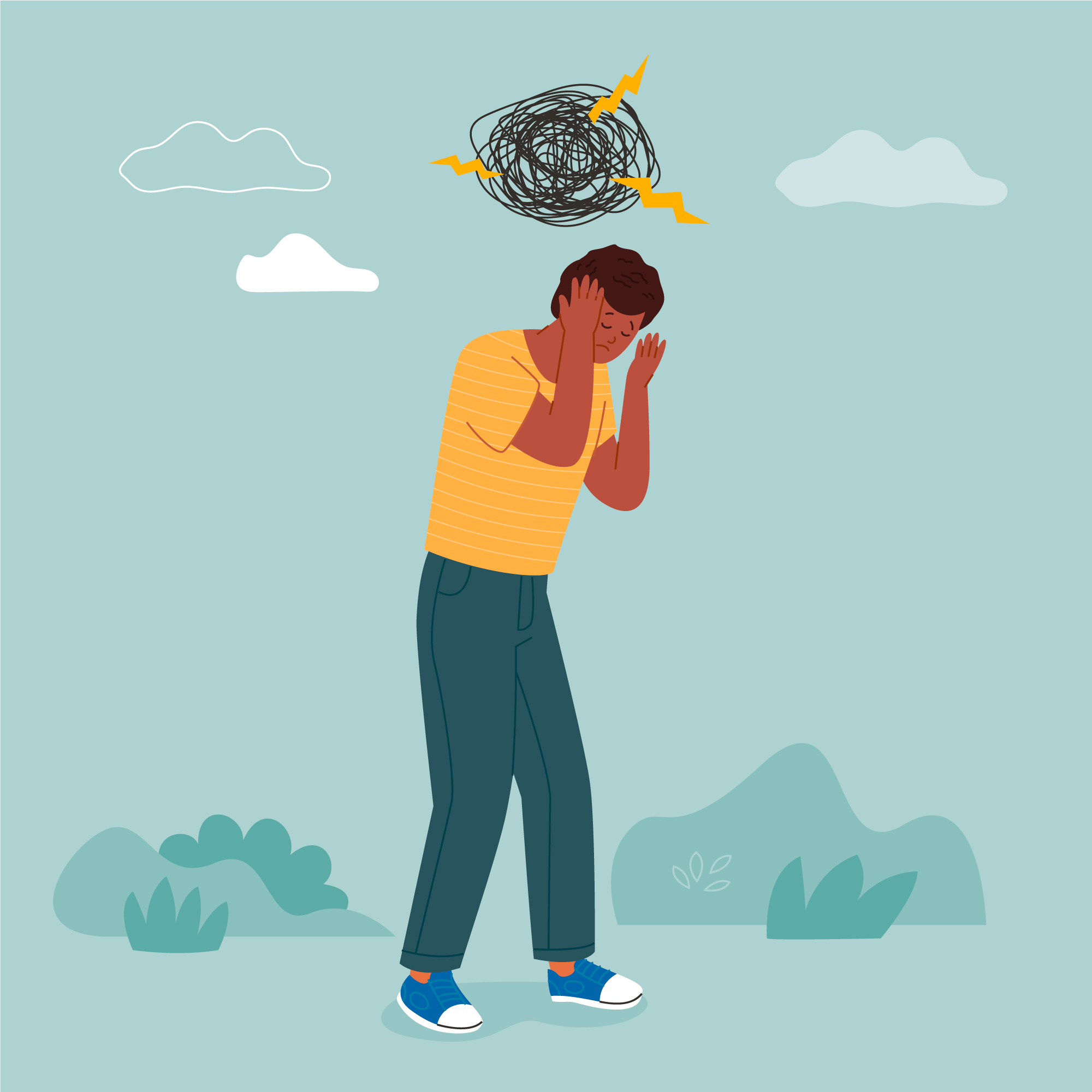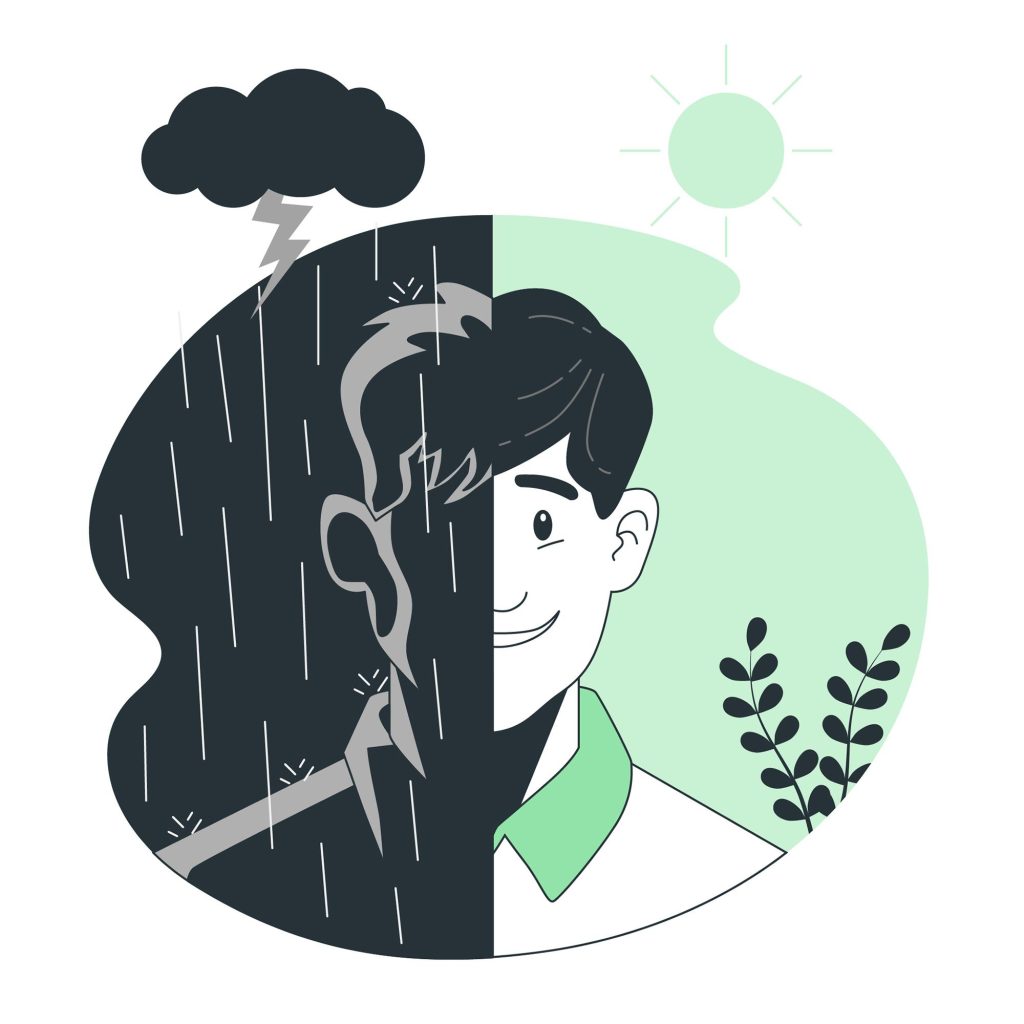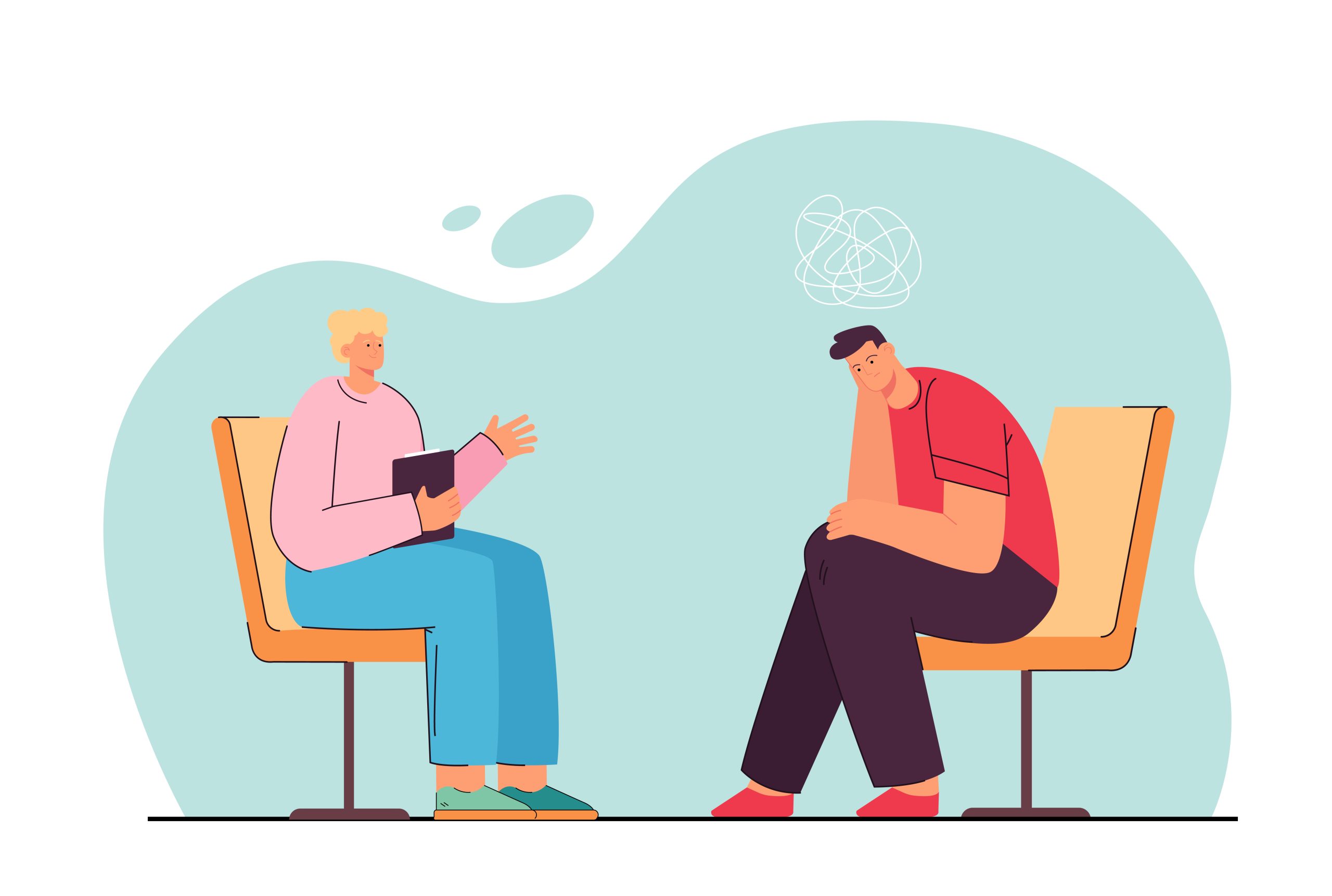
When you are suffering from depression, you may feel like your entire life revolves around managing your negative thoughts and feelings caused by depression. You may be having a sense of worthlessness, hopelessness, and you may think that there isn’t a point in going forward in life.
These thoughts are often accompanied by a feeling of being extremely low. These negative thoughts, feelings, and emotions lead to the diagnosis of depression. Depression is increasingly becoming common, with more than 5% of adults in the world being diagnosed with it.
Having depression can make it difficult for you to feel joy, and can feel like there is no end to these feelings of loneliness, gloom, and sadness. Life can feel monotonous, and can feel like it lacks color and vibrancy. To know more about the symptoms of depression, click here.
No matter how dark or gloomy life may seem when you are experiencing depression, there are ways to overcome depression and manage it. Due to the several studies and consistent research being done on understanding depression, there are now tested ways to work with and manage depression.
This article consists of a list of ways through which you help through your depression, and lead a happier and smoother life.
Ways To Manage Depression

The path to recovery from depression can be challenging. It can be difficult to understand the symptoms, and identify depression in ourselves and others. Even after recognizing these symptoms, there is stigma that is often associated with seeking treatment for depression, despite how common of a mental health condition it is.
This stigma often makes people hesitate to ask for help and look up for resources to manage their depression. Here are some ways that you can improve some of the symptoms of depression you may be experiencing.
Understand your depression symptoms: Understanding that depression is a disorder, and not a personal failure or problem on your part is an essential step towards getting better. As you have a condition, it requires support and treatment. You don’t have to go through it all alone. As depression is becoming increasingly common, you can read how others going through depression feel. Understanding your symptoms, and the ways people around you are managing it can give you clarity on what you are dealing with. Listening to people’s stories of those who have overcome depression can also be inspiring and can instill hope within you that it does it get better with time.
Seek professional help: Therapy is an effective tool in understanding the thoughts and negative beliefs that support and prolong the feelings of depression. Therapists help you notice these feelings and create space for the emotions, instead of suppressing or pushing them away.
Therapy also helps you uncover and explore the emotions beyond the apparent ones. Sometimes, when you explore depression, you can notice feelings of shame, anger, guilt, and other emotions coming up. Therapy can help you process these complex emotions by dealing with them in a safe space.
Therapists can also help you identify negative thought and feeling patterns that enable depression to stay within your system. Thus, building this awareness helps in developing a deeper understanding of what causes and sustains your depression.
Consider medication: If you feel like your symptoms are too intense, and are affecting personal, work, and social functioning, then you should consider using medications. However, medications for depression should be consumed only under clinical supervision, like a psychiatrist. Medications for depression can help you manage these symptoms and can make you feel more balanced.
Engage in activities you like to do: One of the main signs of depression is losing interest in doing things you normally do. You may notice that you don’t like following your normal routine or do activities that bring you joy. You may also begin to withdraw from your loved ones. Engaging in joyful activities like talking to friends and loved ones, doing mild exercises, going for a walk, can help even if you are not up to doing them. This is because doing these activities have built in rewards which release feel-good hormones like endorphins into the body once they are done, helping you overcome depression.
Do regular physical activity: Doing mild forms of activities, like slow yoga for even a short span of time like 15 minutes can reduce low mood. Being regular and consistent with taking out a few minutes for mild physical activity can bring a huge difference into your mental health.
Mindfulness and meditation: The concept of mindfulness has been around for centuries. Incorporating mindfulness into meditation can bring a huge shift in your mental health. People often have a misconception that mindfulness meditation or meditation in general is to “quieten” the mind. However, mindfulness helps you observe and watch your thoughts and emotions without getting entangled in them.
Since it is a practice, it isn’t something that comes to many people right away. If you are starting out with a new practice like meditation, you can start by taking a course so that you will be doing the course with a group of people motivating you. You can learn more about and register for our 8-Week Mindfulness Meditation Course here.
Or, you can take a small step to simply get started with a guided meditation right away by clicking here.
Having a balanced diet: We refer to our gut as our “second brain.” Our brain and gut communicate constantly, and both are influenced by one another’s actions. As a result, what we put into our bodies ultimately shapes how we think and feel. Depression also alters our appetite levels. If you have an increased appetite, it is best to consume healthy foods, even if you eat often.
Try your best to avoid sugary snacks. Sugary foods can make you feel better momentarily, however it does slow down your digestion, and lower your energy, increase fatigue, and reduce your motivation in the long run. Therefore, try to incorporate more fresh vegetables and fruits into your diet which can help the body feel lighter and energetic.
Take baby steps to overcome depression: Sometimes, the tendency to set high and unrealistic goals on yourself can do more harm than good. This is because when you are unable to achieve these goals, you may go back to feeling low and unmotivated. Instead, set realistic expectations and manageable goals and move towards them by taking small, intentional steps.

Feeling Low?
Counseling can be a great tool for you to manage and overcome depression and lead a happy and balanced life.
We are here for you.

Depression can make you feel hopeless about tomorrow. Adding these ways to manage your depression, in addition to therapy, can bring significant, positive changes to your mental health.
Navigating through the feelings and loneliness that accompany depression can feel isolating. However, you must know that you don’t have to do it all alone. Seeking help for depression is normal and can be a great way for you to manage these feelings, overcome depression, and get better.
Frequently Asked Questions
Sadness is a normal human emotion that every individual experiences from time-to-time. Sadness tends to go away with time and does not usually hamper your daily functioning.
Depression, however, is a disorder includes feelings of hopelessness and sadness for prolonged periods of time. It affects multiple areas of your life and requires professional support. If you feel like your sadness isn’t going away with time and is affecting your daily functioning, it is always great to seek help.
Depression is unique to each individual. Therefore, there is no particular timeline for healing. Also, people healing from depression have varying levels of motivation and patterns which also affects the time taken to create shifts.
Taking a few sessions with a therapist will help you understand how frequent your sessions are going to be and how long it would it take to see changes.
If your symptoms are making it difficult for you to manage everyday life, then taking medications may be a good option. However, we recommend you to consult a Psychiatrist to evaluate whether you will have to consume medications. Medications can help you in balancing the bio-chemicals in the brain that affect your mood.
About the Author
This article was written by Parvathi Ganesan, Counselor at Inner Space. This post was consulted & approved by professional therapists practicing online therapy and counseling.
Ask a Therapist
If you are interested to know more about depression and other mental health topics, ‘Ask A Therapist’ is a platform for you to ask your questions related to Mental Health, Mindfulness & Emotional Well-Being to our team of qualified Therapists.




